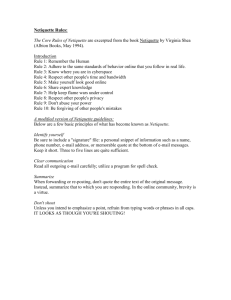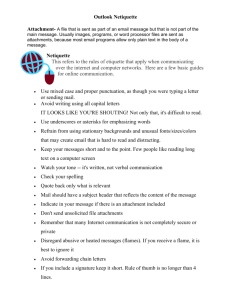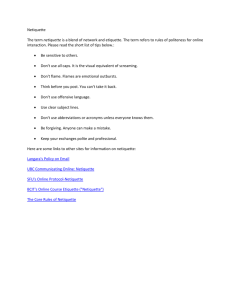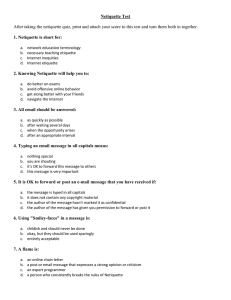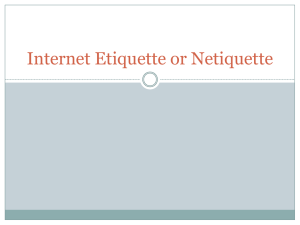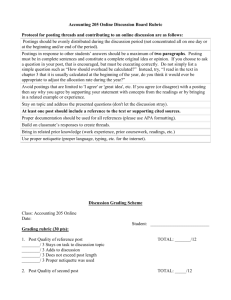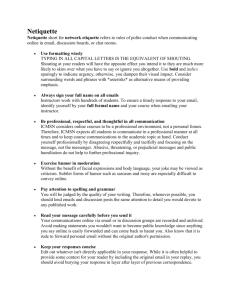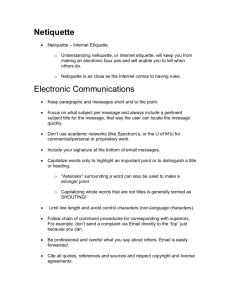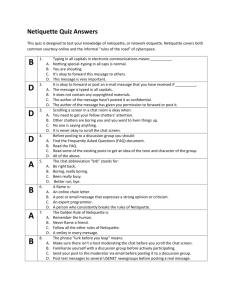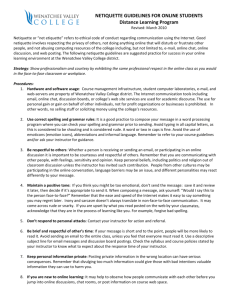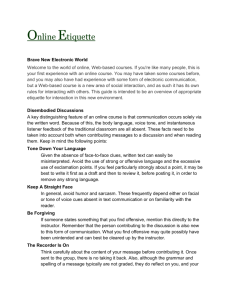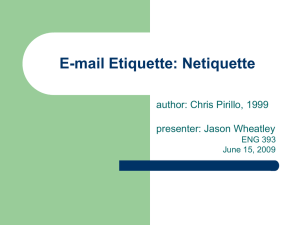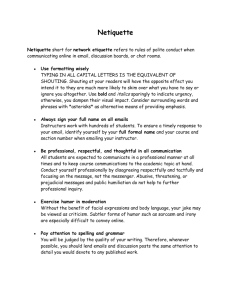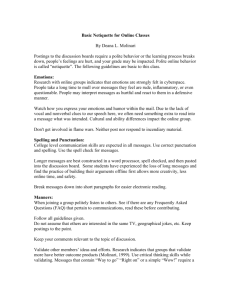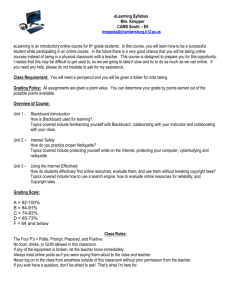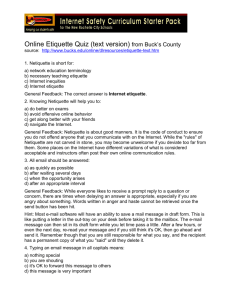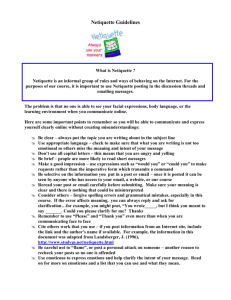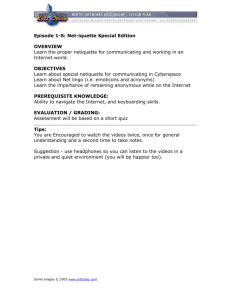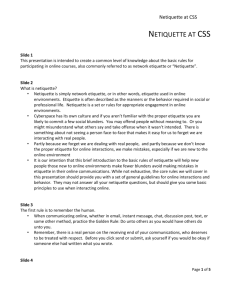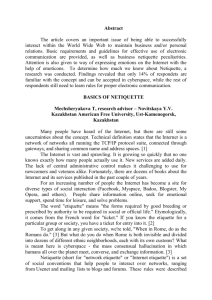Online Netiquette
advertisement
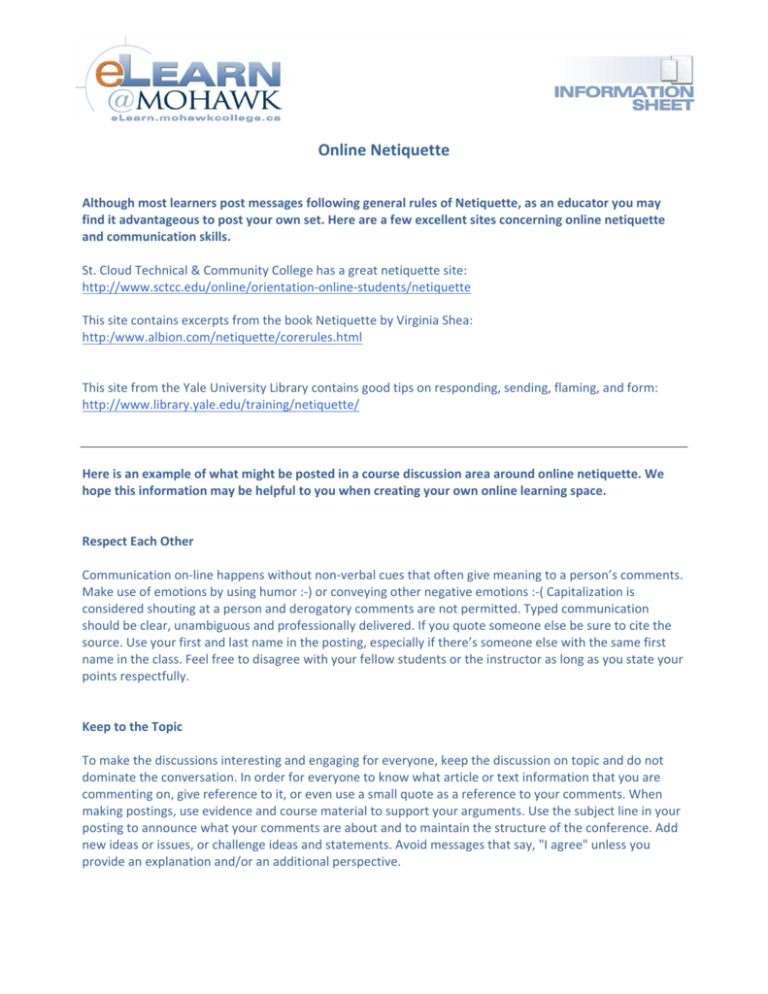
Online Netiquette Although most learners post messages following general rules of Netiquette, as an educator you may find it advantageous to post your own set. Here are a few excellent sites concerning online netiquette and communication skills. St. Cloud Technical & Community College has a great netiquette site: http://www.sctcc.edu/online/orientation‐online‐students/netiquette This site contains excerpts from the book Netiquette by Virginia Shea: http:/www.albion.com/netiquette/corerules.html This site from the Yale University Library contains good tips on responding, sending, flaming, and form: http://www.library.yale.edu/training/netiquette/ Here is an example of what might be posted in a course discussion area around online netiquette. We hope this information may be helpful to you when creating your own online learning space. Respect Each Other Communication on‐line happens without non‐verbal cues that often give meaning to a person’s comments. Make use of emotions by using humor :‐) or conveying other negative emotions :‐( Capitalization is considered shouting at a person and derogatory comments are not permitted. Typed communication should be clear, unambiguous and professionally delivered. If you quote someone else be sure to cite the source. Use your first and last name in the posting, especially if there’s someone else with the same first name in the class. Feel free to disagree with your fellow students or the instructor as long as you state your points respectfully. Keep to the Topic To make the discussions interesting and engaging for everyone, keep the discussion on topic and do not dominate the conversation. In order for everyone to know what article or text information that you are commenting on, give reference to it, or even use a small quote as a reference to your comments. When making postings, use evidence and course material to support your arguments. Use the subject line in your posting to announce what your comments are about and to maintain the structure of the conference. Add new ideas or issues, or challenge ideas and statements. Avoid messages that say, "I agree" unless you provide an explanation and/or an additional perspective. Share the Space Similar to a conversation, long and/or frequent posting can be tedious and uninteresting. Focus on one topic for each posting and make the heading short but relevant. Also keep your responses succinct and respond to comments about your own messages in a considerate and timely way. Confidentiality Confidentiality policies pertain to on‐line communication in the same way they apply to other forms of communication. Logins While in this course you will be learning from the other learners as well as the faculty. It is expected that everyone access the course area a minimum of three times per week. Chat rooms Chat room discussions should uphold the above norms.
